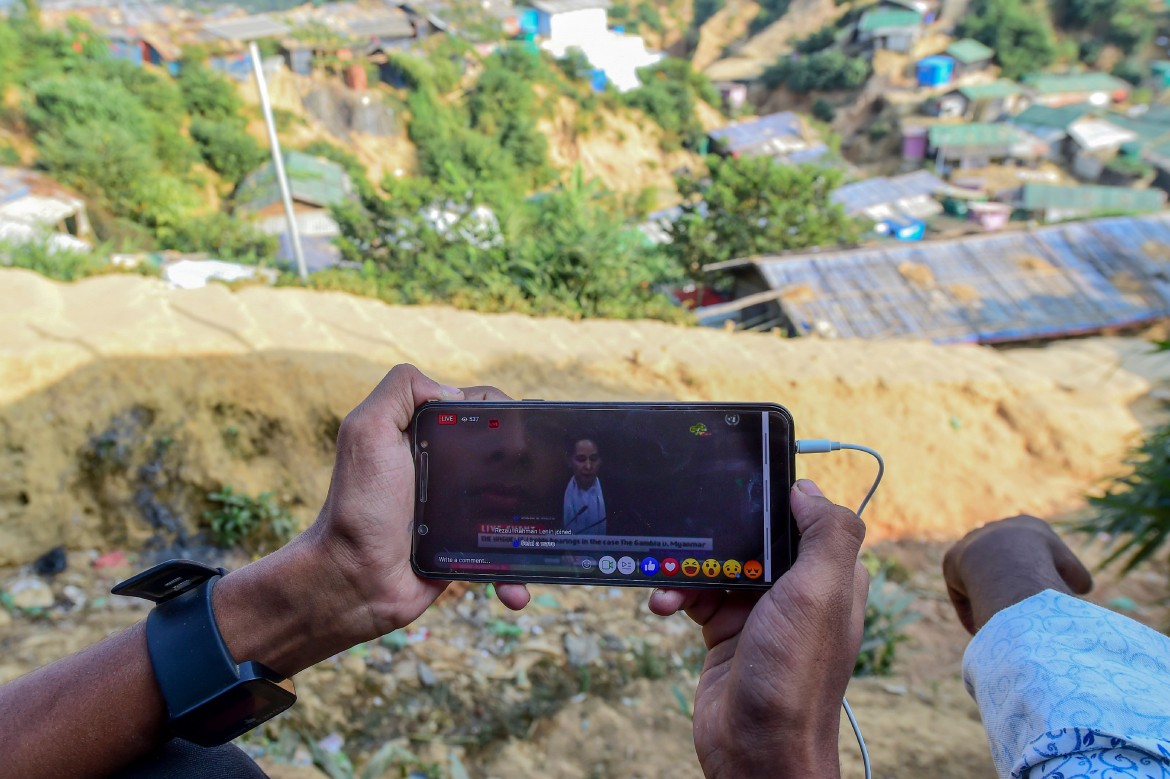Report
Aung San Suu Kyi: from Nobel laureate to ‘ethnic cleansing’ apologist
Suu Kyi’s downfall—from an icon of the struggle for democracy to a shill defending the most heinous crimes—shows how universal rights tend to be watered down when they clash with the interests of a nation-state, or with calculations involving personal gain.

Defending the indefensible: this is how The Economist recently summed up the task that Aung San Suu Kyi has agreed to undertake. The 1991 Nobel Peace Prize winner was at The Hague on Wednesday, speaking before the 17 judges of the International Court of Justice and trying to defend the government of Myanmar for the crimes committed in the summer of 2017 against the Rohingya people in the state of Rakhine.
More than 700,000 Rohingya were forced to leave their homes, cross the Naf River and seek refuge in neighboring Bangladesh, in the Cox’s Bazar district. Abusive treatment, summary executions, villages burned to the ground, children left without mothers, mothers forced to witness the execution of their children and husbands, the systematic use of rape as a weapon of war: according to the UN High Commissioner for Human Rights, the stories and reports of those who escaped make up a “textbook case of ethnic cleansing.”
This situation finally prompted the government of Gambia, as a representative of the 57 member states of the Organization of Islamic Cooperation, to bring the case before the International Court. The Gambian government has put forward the accusation that the Burmese authorities have violated the 1948 Genocide Convention, and has called for “provisional measures” (akin to a restraining order) that would force Myanmar to protect the approximately 600,000 Rohingya still in the country.
Formally a State Councilor, but the de facto Burmese head of state, Suu Kyi on Wednesday denied the charge of genocide, claiming there were only internal clashes caused by attacks on local police stations, and admitting that there may have been “disproportionate force” used by members of the army. She claimed that these cases did not amount to genocide and that they would be dealt with internally by Myanmar’s military justice system.
According to Amnesty International, these denials are “deliberate, deceptive and dangerous,” trying to sweep under the rug the systematic and repeated persecution of an entire population and the deaths of around 10,000 Rohingya. The fact that Suu Kyi avoided using the term “Rohingya” even once in her 30-minute speech, implicitly denying the very existence of this population, just as the government of Myanmar continues to do—which treats them as unwanted foreign guests—spoke volumes in the eyes of observers.
Suu Kyi’s downfall—from an icon of the struggle for democracy to a shill defending the most heinous crimes—shows how universal rights tend to be watered down when they clash with the interests of a nation-state, or with calculations involving personal gain.
Indeed, domestic political calculations are most likely behind her choice, as Shibani Mahtani and Michael Birnbaum pointed out in The Washington Post. On one hand, she wants to strengthen her position and that of her party, the National League for Democracy, in view of the November 2020 elections, with a gesture that fulfils the wishes of a majority in Myanmar, where there is a widespread perception that the outside world has not understood the real nature of the events that happened in the summer of 2017. On the other hand, she wants to improve her relations with the military, which, despite the relaxation of the regime during 2015-16, which allowed her to return to the political scene and join the government after almost 15 years of intermittent imprisonment, is still in control of the country and has the right to veto any constitutional change.
Some see the signs of a real alliance with the military behind Suu Kyi’s controversial choice to defend their actions: “The Lady” forfeits her reputation in the eyes of global public opinion, but in exchange, the military allow her to become president at some point in the future.
Originally published at https://ilmanifesto.it/dal-nobel-per-la-pace-al-negazionismo-sui-rohingya/ on 2019-12-12
